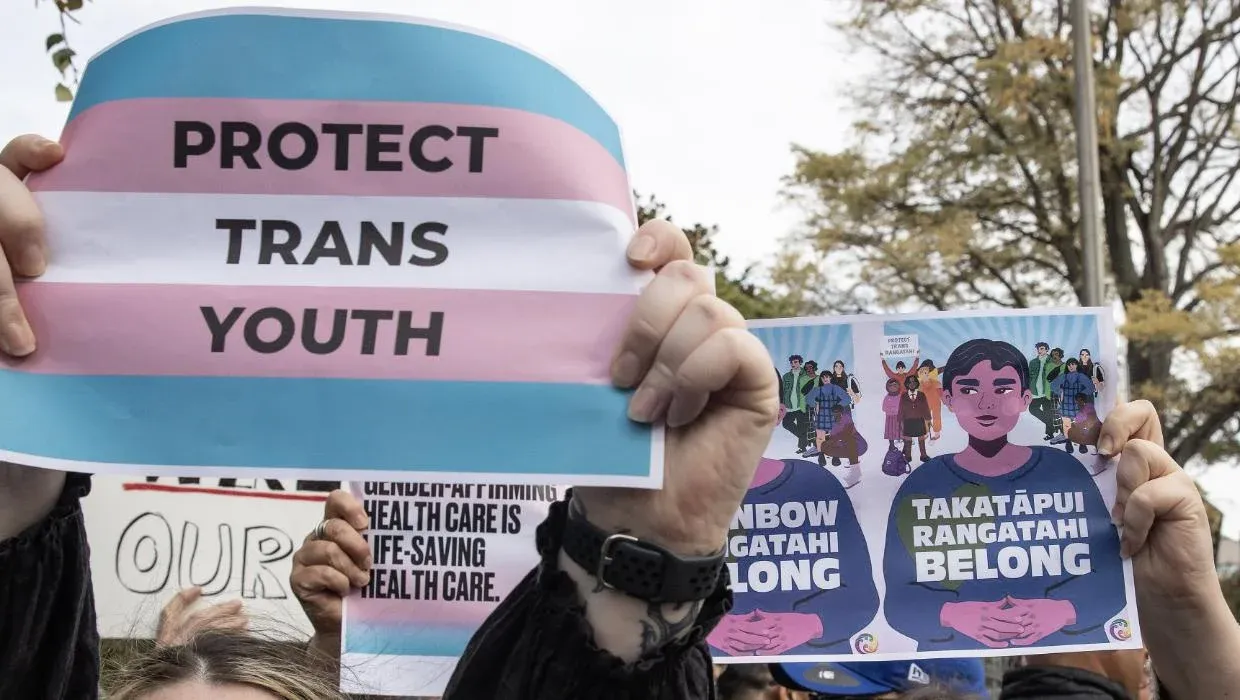The Ministry of Health has issued a warning to doctors in New Zealand about the use of puberty blockers, cautioning them to take a “precautionary approach” before prescribing these medications to young transgender patients. The move comes as the government considers imposing further restrictions on the prescription of puberty blockers, citing a lack of quality evidence supporting their effectiveness and safety.
The Ministry’s Evidence Brief: What’s Behind the Caution?
In 2023, a study from the UK, known as the Cass Review, found that there was “no good evidence” regarding the long-term effects of puberty blockers. This has led to a re-evaluation of the use of these medications in New Zealand, with the Ministry of Health releasing an evidence brief that highlights the limitations of current research.
Understanding The Main Concept
Puberty blockers are medications prescribed to young transgender patients to delay or halt the onset of puberty. These medications have become increasingly popular in recent years, but their use has also raised concerns about safety and efficacy.
How To Implement Best Practices
The Ministry of Health has announced new rules for prescribing puberty blockers, which include:
• Only allowing clinicians working as part of an interprofessional team to prescribe these medications
• Requiring a full range of supports to be offered to young people presenting with gender identity issues
• Commissioning research into the long-term clinical and mental health impacts of puberty blockers in New Zealand
Why This Matters For Healthcare Professionals
The use of puberty blockers requires careful consideration and planning. Healthcare professionals must weigh the potential benefits against the risks, including the possibility of permanent effects on physical and mental health.
Why It Matters For Transgender Youth
Transgender youth often face significant barriers to accessing healthcare and support. The availability of puberty blockers can be a critical factor in their transition journey, but it is also essential that these medications are used responsibly and with caution.
The Breakdown: What’s Behind the Ministry’s Decision?
The Ministry of Health surveyed over 4000 papers analyzing the use of puberty blockers, but found only 20 papers about clinical outcomes that met the criteria for inclusion in its review. This highlights the need for more research into the effectiveness and safety of these medications.
What’s Next?
The Ministry will continue to hear submissions until late January on whether to impose further restrictions on prescribing puberty blockers. The government has also proposed updating clinical guidance, increasing monitoring of prescriptions, and regulatory measures to ensure that these medications are used responsibly.
Who Said What
The Minister for Health, Shane Reti, and the Minister for Children, Matt Doocey, released a joint statement saying that the evidence brief showed there was “a lack of quality evidence about the safety of puberty blockers.” They also stated that the government would have more to say at the end of the consultation period.
Reactions From Political Parties
The debate around puberty blockers has sparked reactions from various political parties. The Deputy Prime Minister, Winston Peters, said that this followed NZ First’s campaigning during the election to limit the use of these medications. Meanwhile, Labour Party rainbow spokesperson Shanan Halbert stated that those who were “deliberately misleading” the public about the availability of puberty blockers as part of interprofessional healthcare plans.
The Use of Puberty Blockers: A Growing Concern
While the use of puberty blockers is relatively uncommon in New Zealand, it has increased significantly since 2010. The number of young people using these medications has risen from around 25 in 2010 to between 113 and 140 over the past few years.
International Perspectives on Puberty Blockers
The debate around puberty blockers has also gained international attention. In the UK, the National Health Service (NHS) has effectively stopped the use of these medications in almost all cases, awaiting further evidence. The Cass Review found that there was “no good evidence” regarding the long-term effects of puberty blockers.
Research into Puberty Blockers: What’s Needed?
The Ministry of Health is commissioning research into the long-term clinical and mental health impacts of puberty blockers in New Zealand. This research aims to address the limitations of current knowledge and provide a clearer understanding of the safety and efficacy of these medications.
Conclusion
The use of puberty blockers is a complex issue that requires careful consideration and planning. While there are valid concerns about their effectiveness and safety, it is also essential to ensure that young transgender patients have access to these medications when they need them most. By taking a precautionary approach and implementing best practices, healthcare professionals can help ensure the responsible use of puberty blockers in New Zealand.
Word Count: 1075

0 Comments